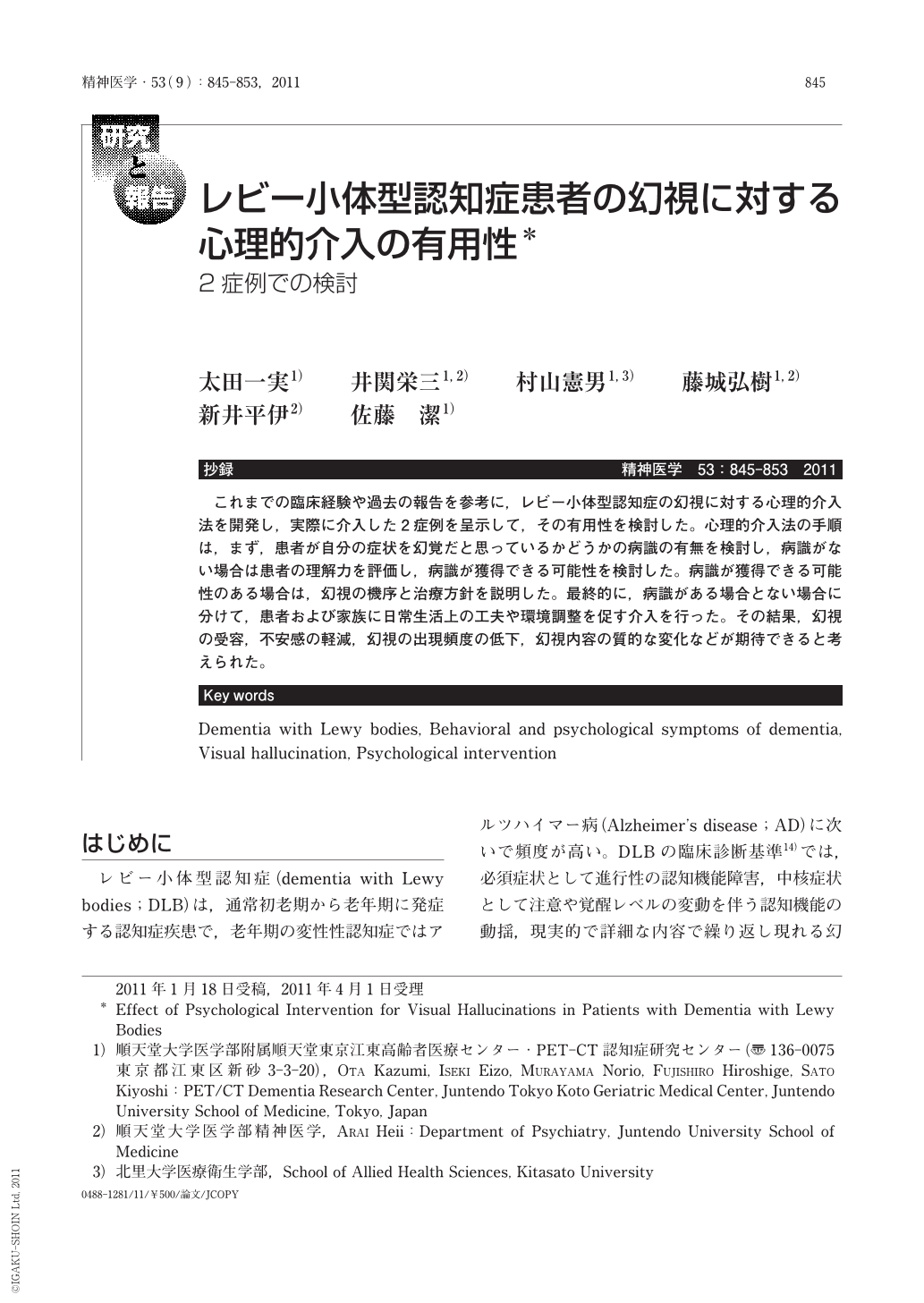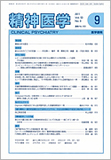Japanese
English
- 有料閲覧
- Abstract 文献概要
- 1ページ目 Look Inside
- 参考文献 Reference
抄録
これまでの臨床経験や過去の報告を参考に,レビー小体型認知症の幻視に対する心理的介入法を開発し,実際に介入した2症例を呈示して,その有用性を検討した。心理的介入法の手順は,まず,患者が自分の症状を幻覚だと思っているかどうかの病識の有無を検討し,病識がない場合は患者の理解力を評価し,病識が獲得できる可能性を検討した。病識が獲得できる可能性のある場合は,幻視の機序と治療方針を説明した。最終的に,病識がある場合とない場合に分けて,患者および家族に日常生活上の工夫や環境調整を促す介入を行った。その結果,幻視の受容,不安感の軽減,幻視の出現頻度の低下,幻視内容の質的な変化などが期待できると考えられた。
We conducted a psychological intervention for visual hallucinations (VH) in patients with dementia with Lewy bodies (DLB). Psychiatrists and clinical psychologists specialized in dementia conducted this intervention with DLB patients and their families. In the present study, this psychological intervention was applied to 2 DLB patients with VH to examine its effect. The first step of the intervention is to assess whether the patients can discriminate between real objects and VH, i.e. awareness of VH. When the patients do not show VH awareness, we evaluate their cognitive function. If the patients have sufficient cognitive function, we explained the characteristics of the disease and the mechanism underlying VH. Finally, we divided the patients into 2 groups depending on whether or not they were capable of developing VH awareness. Further, the patients and their families in each group were given appropriate suggestions on how to spend time and create asuitable environment for living. Consequently, the patients and their families are expected to show VH acceptance, reduced fear and confusion about VH, and reduced frequency of VH, and to experience less frightening VH events.

Copyright © 2011, Igaku-Shoin Ltd. All rights reserved.


